Monday, I joined Paul Byfield of European Bank for Reconstruction & Development (EBRD) to discuss the importance of standards and certification with 40 or so delegates at the first virtual ARK KM Summit facilitated by Nick Stone. I’d keynoted at an EBRD event that looked inter alia at the ISO KM standards and certification in November with Paul who is currently working to become one of the first to hold the accreditation, “Chartered Knowledge Manager”.
It’s a topic I feel passionately about having first looked at the “Evolving role of the Knowledge Manager” a decade ago, accepted an invitation in 2016 to become Knowledge & Information Management Ambassador for Chartered Institute for Libraries & Information Professionals (CILIP) and, as it positions itself to become a natural home for KM professionals, its President in 2021.
My presentation, “Professionalising KM” can be found here.
“Striving down the path to corporate legitimacy”
I’ve often used this phrase. For me it illustrates the progress being made positioning Knowledge Management as an accepted discipline in organisations. Similar horiztonal corporate functions have been through this ‘legitmisation’. Here’s two examples:
- Personnel became Human Resources and then Talent Management. It’s industry body Chartered Institute of Personnel Development founded 1913 has become the ‘go to’ and CIPD’s qualifications are the recognised professional standard for HR and training specialists working across the UK’s public, private and charity sectors. How many businesses do you know without some form of HR function?
- Marketing likewise has it’s own industry body Chartered Institute of Marketing (CIM) founded in 1911. It too has a career pathway for development based upon professional qualifications. Its not uncommon for the Cheif Marketing Officer to be one of the senior executive team and the role of Marketing (and Communications) to be a core corporate function.
Knowledge Management is a much newer discipline of less than 30 years and misunderstood by many. The arrival of the ISO KM Standards 30401 was a significant milestone even if adoption is going to take time and the introduction of a globally recognised (and independent) benchmark of a person’s competence is potentially another.
Where I believe CILIP which was established in 2002 (evolving from the Library Association which dates back to 1877) have got it right is through the mapping of their Professional Knowledge & Skills Base (PKSB) to ISO 30401. Led by Karen Macfarlane formerly CILIP Chair and Head of KIM Profession (HMG Civil Service) with contributions from such KM luminaries as Patrick Lambe, it has already been adopted by a number of significant institutions such as NHS’s Health Education England for their career pathway and vocational skills development.
KM post Coivd-19
Having given a few virtual presentations in May and seen at first hand the impact a KM approach can make in a crisis situation I was interested to see how the KM community is coping and moreover how secure KM professionals feel in their roles.
At the end of Paul and my presentation we posed three questions:
- Will you consider being assessed against the ISO KM standards?
- Yes = 60%, No =25%, Not relevant = 15%
- Do you think Knowledge Chartership / Fellowship will be valuable to you?
- Yes = 80%, No = 10%, Not relevant = 10%
- How unsure are you of your role, post lockdown?
- Very = 5%, A little = 55%, Not at all = 45%
In discussion both he and I felt the lack of uncertainty was a positive. I wondered aloud whether 5 years ago pre standards and certification we would have got the same response to question 3. I firmly believe that people (and organisations) gravitate towards the type of order and structure that standards and certification bring.
And finally
At the end of a lively session and many good questions, it was good to hear from Paul how cathartic the process of self reflection that goes with assembling a portfolio for submission for chartership has proved for him.


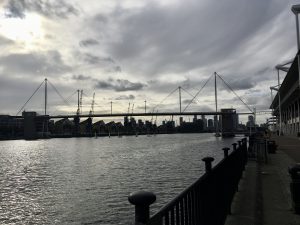
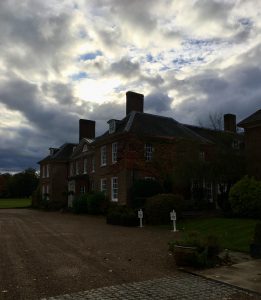

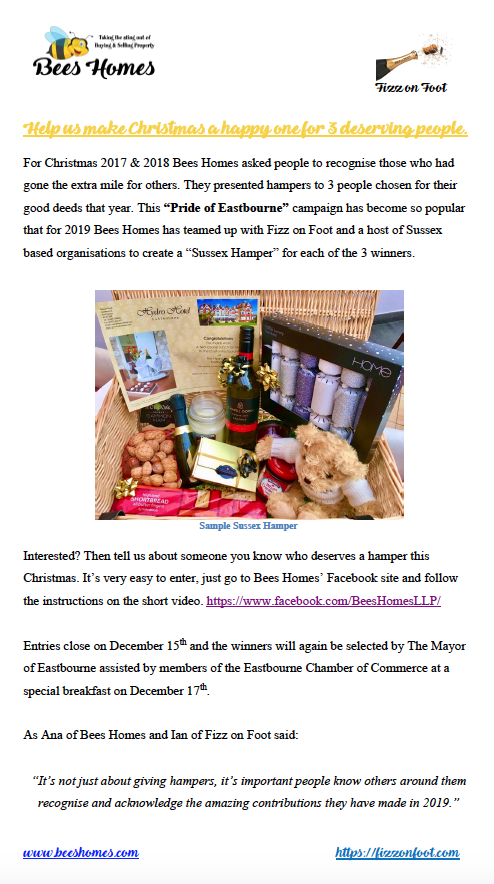
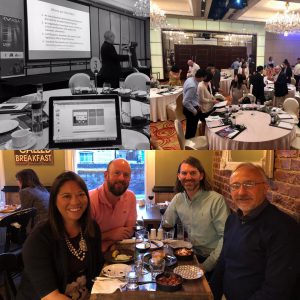
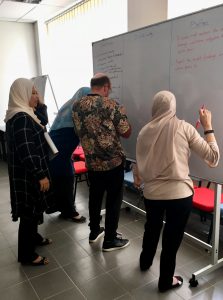

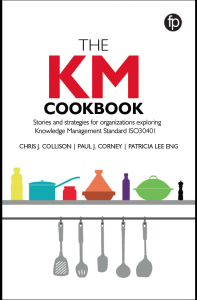
 Despite all the uncertainty, Brexit is proving less of a challenge as there is a move from vendors towards the type of quality service we are offering. A key statistic for us is “Property Views” online and it’s great to be able to report we are currently #1 in our region.
Despite all the uncertainty, Brexit is proving less of a challenge as there is a move from vendors towards the type of quality service we are offering. A key statistic for us is “Property Views” online and it’s great to be able to report we are currently #1 in our region.
Euan Semple you and I have talked before about having a portfolio of activities where a thin red line or thread connects everything you do. I know many people who’ve taken a jump from the security of a “day job” to being in what today is known as the gig economy. And in the majority of cases they are more fulfilled emotionally if less financially enriched. I’ve watched your journey from corporate to ‘consultant’ to ‘traveller’ with admiration. I’ve always believed that people are judged by the stories others tell about them. You’ve spawned many. Keep travelling!